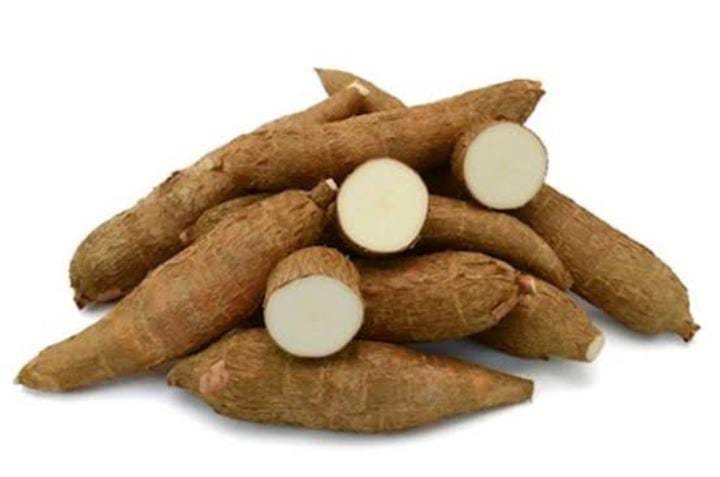
Our customer support team is here to answer your questions. Ask us anything!
Chat with us on WhatsApp

Written By: Flipbz.org
The cassava export business is a lucrative venture for entrepreneurs looking to capitalize on the growing global demand for cassava products. Cassava is a versatile crop used in various industries, from food and beverages to pharmaceuticals and biofuels. If you're considering entering this market, here’s a step-by-step guide to starting a cassava export business.
Before venturing into cassava export, conduct thorough market research to understand demand trends, target markets, and competition. Identify countries with high demand for cassava and its derivatives, such as cassava chips, flour, and starch. Some major importers include China, the European Union, and the United States.
Research international standards and trade regulations for cassava products, including permissible pesticide levels, labeling requirements, and packaging specifications. Understanding the preferences and regulations of your target market is critical for success.
A well-thought-out business plan acts as a roadmap for your cassava export business. Your plan should include:
Executive Summary: Overview of your business objectives and vision.
Market Analysis: Insights into target markets, customer needs, and competitors.
Operations Plan: Details of cassava sourcing, processing, packaging, and shipping.
Financial Projections: Estimates of startup costs, revenue, and profitability.
Marketing Strategy: How you will promote your products to potential buyers.
This document will also be essential for securing funding from investors or financial institutions.
Register your cassava export business with the appropriate local authorities. Obtain the necessary licenses and permits, such as an export license, tax identification number, and food safety certifications. Depending on your location, you may also need to register with your country's export promotion council or agricultural board.
Ensure compliance with international trade requirements, such as those outlined by the International Plant Protection Convention (IPPC) for agricultural exports.
Establishing a consistent and reliable supply of cassava is vital for your business. Partner with farmers or cooperatives to ensure a steady flow of high-quality cassava. Consider entering into long-term contracts to maintain consistent pricing and availability.
Ensure the cassava is cultivated using sustainable and ethical farming practices, as many international buyers prioritize eco-friendly sourcing.
Raw cassava has a short shelf life, making processing a crucial step in the export business. Decide whether to export raw cassava, processed products like flour or starch, or value-added goods like chips. Invest in the necessary machinery for washing, peeling, drying, and packaging cassava products.
Packaging plays a significant role in maintaining product quality during transit. Use durable, moisture-proof, and export-grade packaging materials that comply with the regulations of your target markets.
Establishing a network of reliable buyers is crucial for your cassava export business. Attend trade fairs, agricultural expos, and international exhibitions to connect with potential clients. You can also join online B2B platforms like Alibaba, TradeIndia, and Global Sources to reach a wider audience.
Develop a professional website and maintain an active presence on social media to showcase your products. Highlight certifications, quality standards, and your business’s ability to meet bulk orders.
Exporting cassava involves various logistical considerations. Work with a reputable freight forwarder or shipping agent who can handle customs documentation, shipping arrangements, and insurance. Ensure your products are transported under the right conditions to maintain their quality and freshness.
Familiarize yourself with Incoterms (International Commercial Terms) and negotiate terms of delivery and payment with your buyers. Common terms include FOB (Free on Board) and CIF (Cost, Insurance, and Freight).
Consistency in quality is key to building trust and reputation in the export market. Implement strict quality control measures at every stage of the supply chain, from farming to final shipment. Use industry-standard quality tests to ensure your cassava products meet international safety and nutritional standards.
Invest in certifications such as ISO 22000 (Food Safety Management) or HACCP (Hazard Analysis and Critical Control Points) to enhance your credibility.
Starting a cassava export business requires significant financial investment. Expenses include purchasing cassava, processing equipment, packaging materials, logistics, and marketing. Explore funding options such as bank loans, grants, or partnerships with investors.
Keep detailed records of your transactions, costs, and revenues to manage your finances effectively. Use accounting software to streamline financial management and track profitability.
Once your cassava export business is operational and profitable, focus on scaling it. Diversify your product offerings by exploring other cassava-based products, such as bioethanol, animal feed, or tapioca pearls. Expand your market reach by targeting new regions or countries.
Invest in marketing campaigns to promote your brand and differentiate your products from competitors. Build long-term relationships with buyers by maintaining consistent quality and delivering on time.
Weather Dependency: Cassava farming is affected by weather conditions. Mitigate risks by diversifying suppliers.
Pest Control: Ensure proper pest management to maintain crop quality.
Market Competition: Differentiate your products through superior quality and sustainable practices.
Regulatory Compliance: Stay updated on changes in trade policies and regulations to avoid delays or penalties.
Starting a cassava export business can be highly rewarding with proper planning and execution. By following this step-by-step guide, you can navigate the complexities of the export market and establish a successful business. Focus on quality, compliance, and building strong buyer relationships to thrive in this competitive industry. With cassava's growing global demand, your business has the potential to make a significant impact while achieving financial success.
Please register to comment.
With these components in place, your business...
Open the Listing model file located in the ap...
Discover promising partnership opportunities in various industries.
Pitch Your Startup | Find Partners
Comments